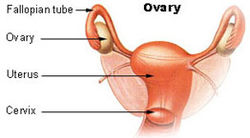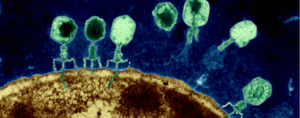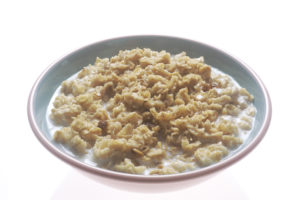 A plant-based diet (eating lots of plant foods - fruits, vegetables, whole grains, legumes, seeds and nuts) once again shows health benefits in a new study - here a lower incidence of type 2 diabetes. But what kind of plant-based foods one eats is important: consumption of a plant-based diet that emphasized healthy plant foods was associated with a larger decrease (34%) in diabetes risk, while consumption of a plant-based diet high in less healthy plant foods (soda, fruit juices, sweets/desserts, refined grains) was associated with a 16% increased diabetes risk. From Medical Xpress:
A plant-based diet (eating lots of plant foods - fruits, vegetables, whole grains, legumes, seeds and nuts) once again shows health benefits in a new study - here a lower incidence of type 2 diabetes. But what kind of plant-based foods one eats is important: consumption of a plant-based diet that emphasized healthy plant foods was associated with a larger decrease (34%) in diabetes risk, while consumption of a plant-based diet high in less healthy plant foods (soda, fruit juices, sweets/desserts, refined grains) was associated with a 16% increased diabetes risk. From Medical Xpress:
Healthy plant-based diet linked with substantially lower type 2 diabetes risk
Consuming a plant-based diet—especially one rich in high-quality plant foods such as whole grains, fruits, vegetables, nuts, and legumes—is linked with substantially lower risk of developing type 2 diabetes, according to a new study from Harvard T.H. Chan School of Public Health.
While previous studies have found links between vegetarian diets and improved health outcomes, including reduced risk of type 2 diabetes, this new study is the first to make distinctions between healthy plant-based diets and less healthy ones that include things like sweetened foods and beverages, which may be detrimental for health. The study also considered the effect of including some animal foods in the diet.
The researchers followed more than 200,000 male and female health professionals across the U.S. for more than 20 years who had regularly filled out questionnaires on their diet, lifestyle, medical history, and new disease diagnoses as part of three large long-term studies. The researchers evaluated participants' diets using a plant-based diet index in which they assigned plant-derived foods higher scores and animal-derived foods lower scores.
The study found that high adherence to a plant-based diet that was low in animal foods was associated with a 20% reduced risk of type 2 diabetes compared with low adherence to such a diet. Eating a healthy version of a plant-based diet was linked with a 34% lower diabetes risk, while a less healthy version—including foods such as refined grains, potatoes, and sugar-sweetened beverages—was linked with a 16% increased risk. Even modestly lowering animal food consumption—for example, from 5-6 servings per day to about 4 servings per day—was linked with lower diabetes incidence, the study found.
The researchers suggested that healthful plant-based diets could be lowering type 2 diabetes risk because such diets are high in fiber, antioxidants, unsaturated fatty acids, and micronutrients such as magnesium, and are low in saturated fat. Healthy plant foods may also be contributing to a healthy gut microbiome, the authors said.

 A recent
A recent  Obesity rates in the US are high! Obesity rates in the US were 35% among men and 40.4% in women in 2013-2014, and extreme obesity (class 3) rates were 5.5% for men and 9.9% for women. Obesity is defined as a body mass index (BMI) 30 or greater (≥30), and extreme obesity or class 3 obesity is a body mass index of 40 or greater (BMI ≥40).
Obesity rates in the US are high! Obesity rates in the US were 35% among men and 40.4% in women in 2013-2014, and extreme obesity (class 3) rates were 5.5% for men and 9.9% for women. Obesity is defined as a body mass index (BMI) 30 or greater (≥30), and extreme obesity or class 3 obesity is a body mass index of 40 or greater (BMI ≥40). Surprising results (to me at least) from research comparing various diets and incidence of several cancers in 11,082 individuals in the Netherlands over a 20 year period. I expected the daily meat eaters to have higher rates of the 3 cancers studied, but no....
Surprising results (to me at least) from research comparing various diets and incidence of several cancers in 11,082 individuals in the Netherlands over a 20 year period. I expected the daily meat eaters to have higher rates of the 3 cancers studied, but no.... Important new research was published in January 2016 about a fecal microbiota transplant (FMT) or "poop transplant". The research compared only one patient's gut microbes (thus a case study) to her fecal transplant donor's gut microbes, but it is important for looking at how gut microbes change long-term after a fecal microbiota transplant (poop transplant) and the actual length of time that it takes for the recipient's gut microbial community to become like the donor's gut microbiome. The patient was quickly "cured" of a serious recurrent Clostridium difficile infection after one fecal micriobiota transplant (FMT) from her sister, but there were ongoing long-term changes in the patient's gut microbes for 4.5 years, at which point the microbes (bacteria and viruses) were like the donor's (at the phylum, class, and order levels), and with similar bacterial diversity. At this point the researchers said that "full engraftment" of microbes had occurred.
Important new research was published in January 2016 about a fecal microbiota transplant (FMT) or "poop transplant". The research compared only one patient's gut microbes (thus a case study) to her fecal transplant donor's gut microbes, but it is important for looking at how gut microbes change long-term after a fecal microbiota transplant (poop transplant) and the actual length of time that it takes for the recipient's gut microbial community to become like the donor's gut microbiome. The patient was quickly "cured" of a serious recurrent Clostridium difficile infection after one fecal micriobiota transplant (FMT) from her sister, but there were ongoing long-term changes in the patient's gut microbes for 4.5 years, at which point the microbes (bacteria and viruses) were like the donor's (at the phylum, class, and order levels), and with similar bacterial diversity. At this point the researchers said that "full engraftment" of microbes had occurred. Another community of microbes found in humans in areas once thought to be sterile (without bacteria) - the ovaries and fallopian tubes in the female upper reproductive tract. And the interesting thing is that once again we see differences in the bacterial communities of areas with and without cancer (here the ovaries). From Science Daily:
Another community of microbes found in humans in areas once thought to be sterile (without bacteria) - the ovaries and fallopian tubes in the female upper reproductive tract. And the interesting thing is that once again we see differences in the bacterial communities of areas with and without cancer (here the ovaries). From Science Daily: Some researchers are now testing to see if phage therapy could be a possible treatment for some conditions, such as chronic sinusitis and wound infections. Phage therapy, which uses
Some researchers are now testing to see if phage therapy could be a possible treatment for some conditions, such as chronic sinusitis and wound infections. Phage therapy, which uses  New research looked at people who "aged successfully" over a 10 year period compared with those who were "suboptimal agers" or had died. The successful agers were less likely to smoke, and have higher intakes of fiber from fruits, breads, and cereals (primarily from rolled oats and whole grain breads), but not from vegetables. Successful aging was defined as including an absence of disability, depressive symptoms, cognitive impairment, respiratory symptoms, and chronic diseases including cancer, coronary artery disease, and stroke.
New research looked at people who "aged successfully" over a 10 year period compared with those who were "suboptimal agers" or had died. The successful agers were less likely to smoke, and have higher intakes of fiber from fruits, breads, and cereals (primarily from rolled oats and whole grain breads), but not from vegetables. Successful aging was defined as including an absence of disability, depressive symptoms, cognitive impairment, respiratory symptoms, and chronic diseases including cancer, coronary artery disease, and stroke.  An
An